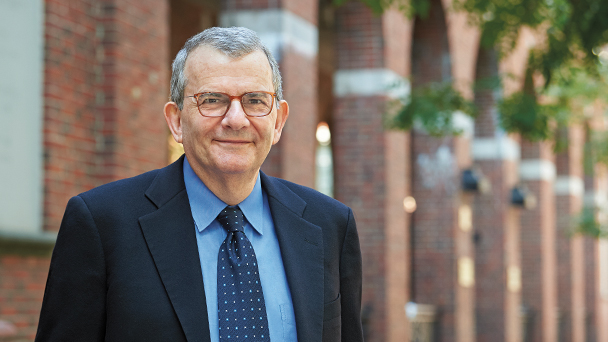
- This event has passed.
Humanities Forum — Samuel Scheffler
May 8, 7:00 pm - 8:30 pm
Location: Fine Arts Recital Hall

Evelyn Barker Memorial Lecture with Samuel Scheffler
Existential Catastrophe and the Love of Humanity
This event is part of the Spring 2025 Humanities Forum
The Oxford philosopher Toby Ord estimates that there is a one in six chance that humanity will experience an “existential catastrophe” within the next hundred years. By an existential catastrophe he means either the extinction of humanity or some other event, like the irreversible collapse of civilization, that destroys what he calls humanity’s “long-term potential.” If it is true that humanity faces a serious risk of existential catastrophe within the next hundred years, how should we respond? In this talk, Samuel Scheffler will address this question and offer a compelling response to the prospect of existential catastrophe.
Samuel Scheffler is University Professor and Professor of Philosophy and Law. He works mainly in the areas of moral and political philosophy and the theory of value. His books and articles have addressed central questions in ethical theory, and he has also written on topics as diverse as nationalism and cosmopolitanism, tolerance, terrorism, immigration, death, tradition, and the moral significance of personal relationships. His publications include six books: The Rejection of Consequentialism; Human Morality; Boundaries and Allegiances; Equality and Tradition; Death and the Afterlife, and Why Worry about Future Generations?, all published by Oxford University Press. He has received Guggenheim and NEH Fellowships and has been a Visiting Fellow of All Souls College, Oxford. He is a fellow of the American Academy of Arts and Sciences, a member of the Royal Norwegian Society of Sciences and Letters, and a foreign member of the Norwegian Academy of Science and Letters.
Admission is free.
The Evelyn Barker Memorial Lecture is organized by the Department of Philosophy and the Center for Ethics and Values, and is co-sponsored by the Dresher Center for the Humanities, the Department of Geography and Environmental Systems, and the Human Context of Science & Technology Program.
